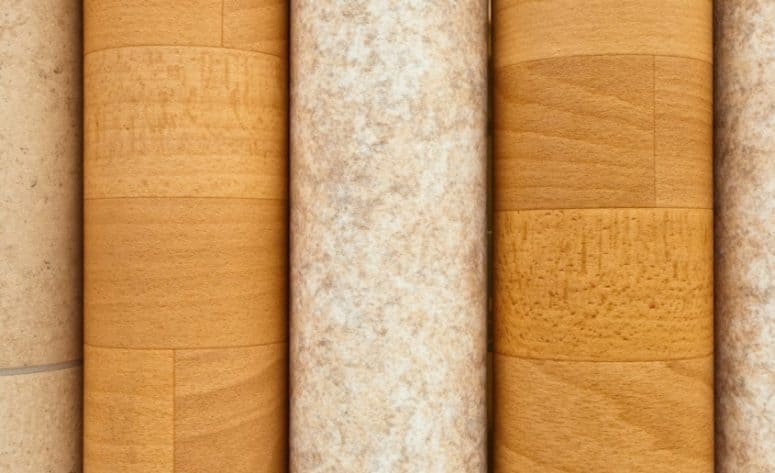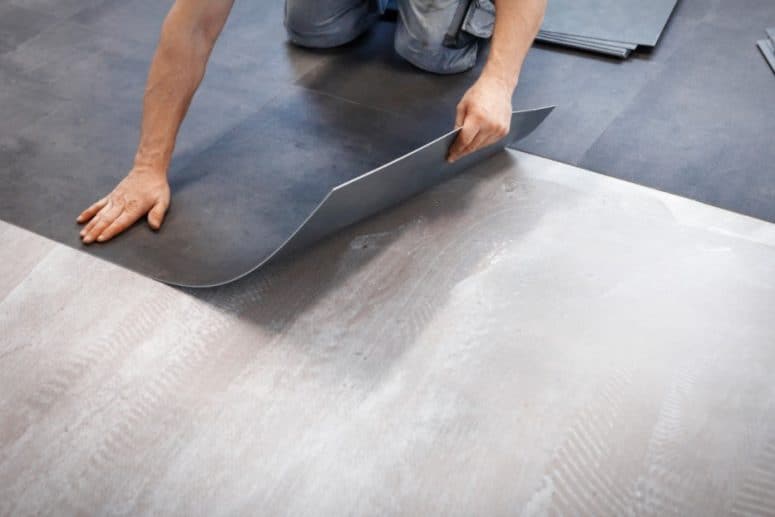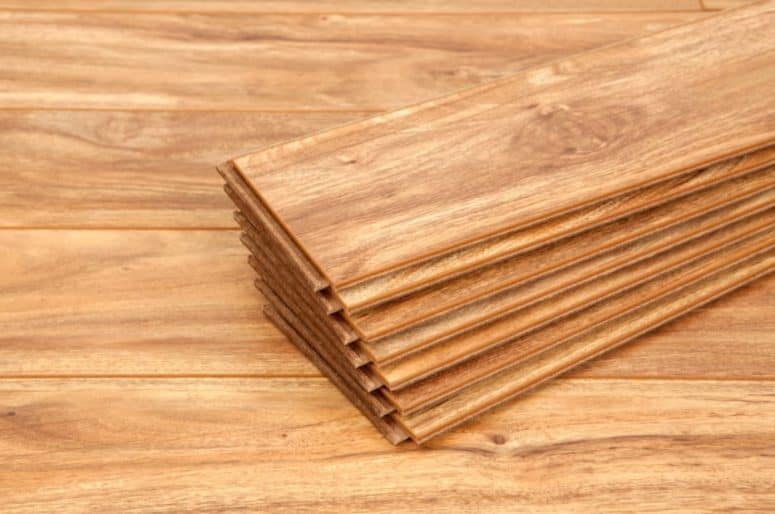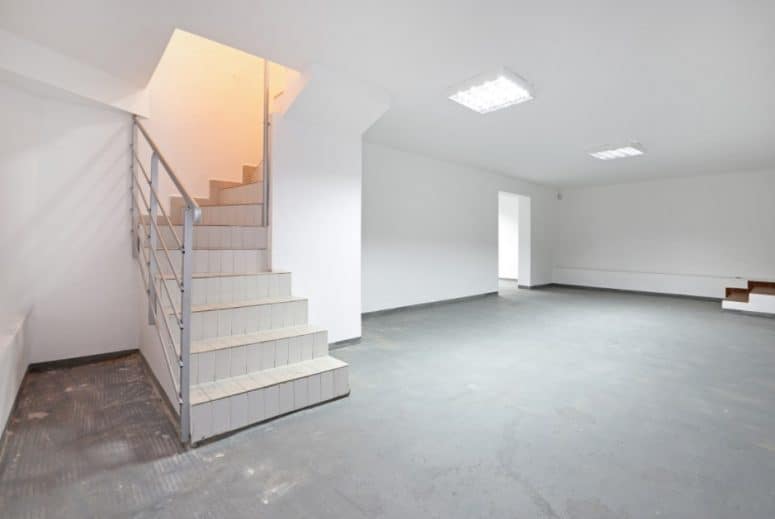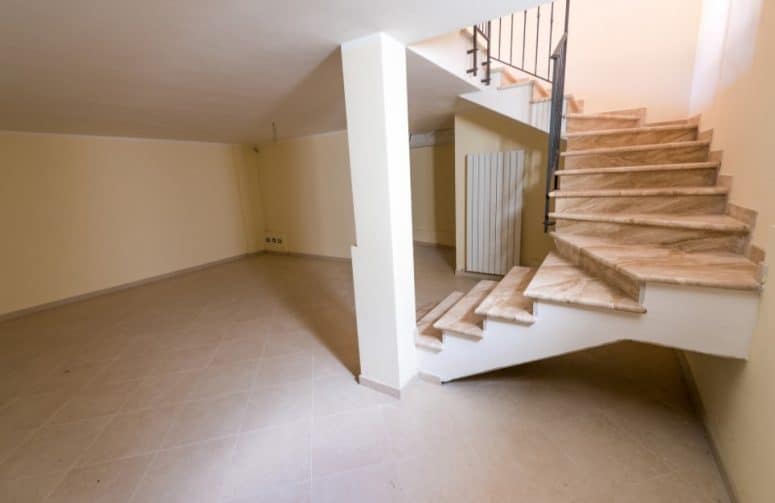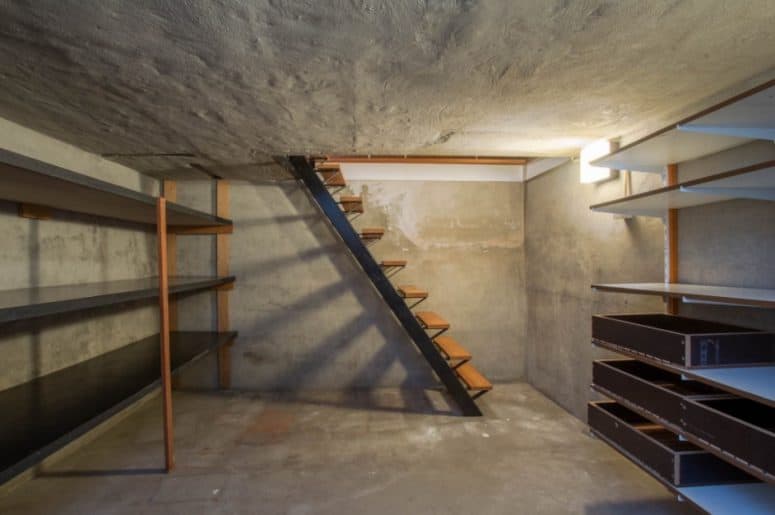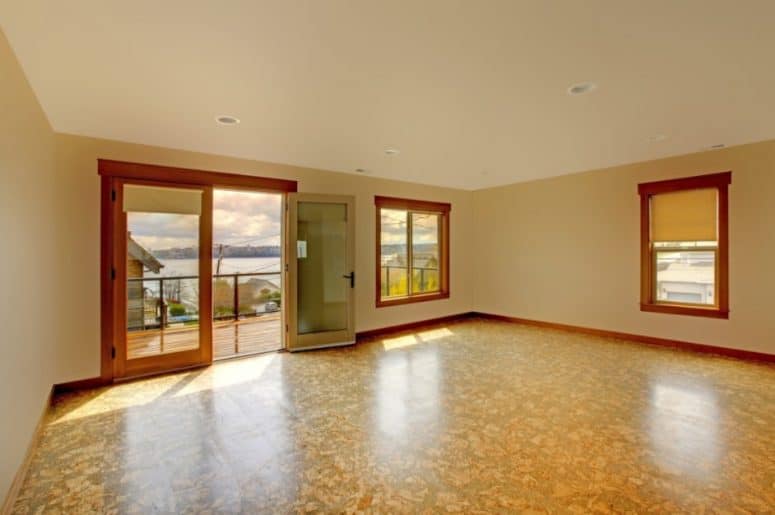Best Flooring for Basement
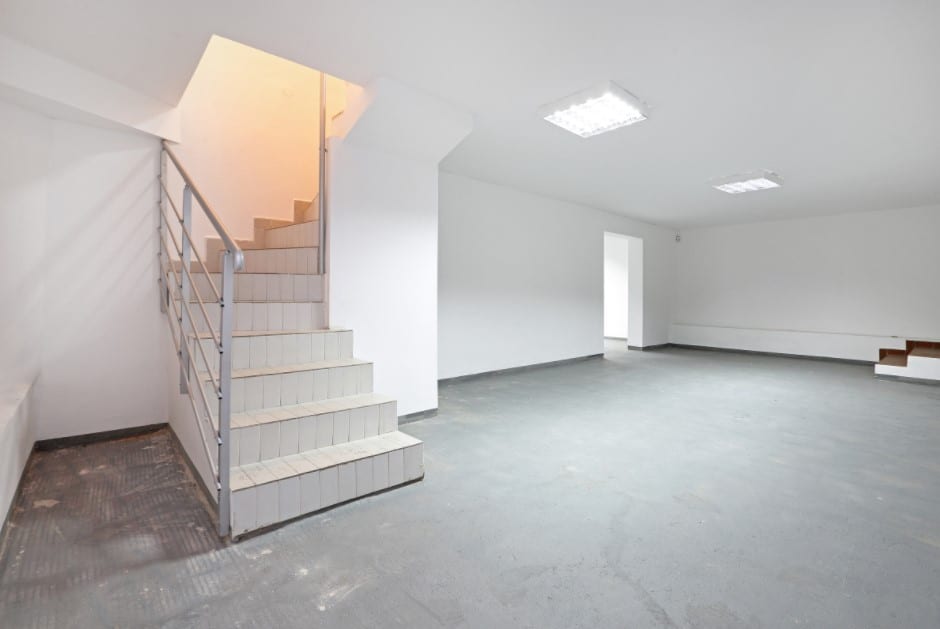
The basement is the room with the highest risk of moisture, mold, and even flood. Since the basement is located below the downstairs, water can easily enter the basement in many ways possible.
Although the weather is dry, there are still many possibilities of the growing mold due to the moisture inside.
Therefore, choosing the right flooring for the basement is essential to make your basement safe from water access and its possible residue that could make you and your family uncomfortable.
Things to Consider Before Choosing Basement Flooring
The basement is built below downstairs. That is why it is also categorized as a room with below-grade flooring.
Below-grade does not necessarily mean that it has bad quality, cheap, or such definitions. The word ‘grade’ refers to the ground.
This terminology is usually used by professional builders or contractors to call the flooring type that will be installed in below-the-ground rooms such as the basement.
Installing below-grade flooring has some conditions that you should pay attention to.
The basic of below-flooring is that it is installed very close to the ground, and it has the highest risk of mold growing, water flooding, and the vapor from the ground, which could moisturize the room. The floor, in particular, is even higher.
Here are the few things you need to take note:
- Choose synthetic material instead of organic or natural materials. Organic ones would get rotten easily by warped water and growing mold. Synthetic material would probably also have mold, but it doesn’t decay on that. Vinyl is one of the examples of synthetic flooring.
- Installing one layer flooring is easier in installation and maintenance as well. One-layer flooring is not going to warp water anywhere.
- Some below-grade flooring has to be installed on the sub-flooring. However, some of it can be installed directly on a concrete slab. This article is going to discuss this as well in each flooring type for your basement.
- Each flooring type may have different conditions that you have to consider before choosing your version of the best flooring for the basement.
Best Flooring Options for Basement
Now you know the basics of choosing a flooring type for below-grade flooring, you should be full of consideration in choosing which one is the best for your basement.
Some homeowners might use their basement to build another guest room in their house. Some others might use their basement to be a recreational room, children playroom, even working space. Those different purposes require different kinds of flooring as well.
Therefore, you need to be attentive on which flooring option suits your purpose best for your basement. Here is the list of the best options for your basement flooring!
1. Vinyl
Vinyl flooring comes in three different forms. They are sheet and plank/tiles. Both have different details, which lead to different pros and cons to be installed in the basement.
Therefore, we’re gonna discuss them separately.
a. Vinyl Sheet
Sheet vinyl is one of the old types of flooring that people trust to be in their watery rooms or rooms with high moisture levels like a basement, for instance. Sheet vinyl is probably one of the most waterproof flooring options. Sheet vinyl makes your flooring very seamless.
In comparison to tile vinyl, it could still potentially have a seam on the edge of each tile once it is installed. But not for sheet vinyl, it is almost perfectly seamless. Installing sheet vinyl in your basement is a good idea because it could protect those damp areas.
Even better, it comes in many various designs that you can adjust based on your preferences and purposes of the basement in the first place. Plus, sheet vinyl is relatively cheap in comparison to other types of flooring.
Nevertheless, it is not so DIY-friendly, tough. The installation needs professional treatment. You’re gonna need your floor renovated beforehand, so the surface is gonna be smooth.
If the floor preparation is not done, the sheet vinyl is not gonna be balance in covering your floor. That is undoubtedly not the feeling ou want to feel on your feet.
b. Vinyl Plank or Tile
Both plank and tile vinyl come in similar forms but different sizes. Their layer and composition are the same, but they have different sizes. That is why I talk about them in the same discussion.
Plank and tile vinyl have improved into many new forms like Luxury Vinyl Plank (LVP) and Luxury Vinyl Tile (LVT). Both are the best choice you can pick in any room and needs.
If you’re looking for waterproof flooring, and you want it visually attractive, LVT and LVP are your answer. LVT and LVP are all 100% waterproof that they could withstand waterflood and heavy moisture.
Also, they come in various designs that look exactly the same as the natural material, such as wood or stone.
The installation is quite simple, but it needs an underlayment because it is better installed in the floating floor method.
If you want to install it directly on a concrete slab, it requires a vapor barrier before the vinyl flooring.
That is because there might be the hydrostatic pressure that allows water to come from the ground in a certain season, like the beginning of spring, where the snow starts melted and the intensity of water on the ground increases.
This could make the water trapped inside the base floor between the vinyl flooring. That is not a good environment. The trapped water can grow specks of dirt or bacteria, which could trigger smells and disease in the basement.
2. Engineered Hardwood Flooring
Engineered hardwood flooring is one of the best alternatives for you who would love to install hardwood flooring in a basement.
Well, you cannot install hardwood flooring, the real one, in a basement. Hardwood flooring is organic, and it would not withstand water spill, flood, and moisture. Plus, it’s molded very easily.
But no worries! Engineered hardwood is stronger for the basement. It is not 100% organic. Instead, it is constructed with plywood as the base, and veneered thin hardwood on the top layer, and it is coated. So, it is entirely waterproof.
The installation is relatively easy, too! You can glue it down or nail it to the leveled sub-floor.
Speaking of which, you might want a professional to install it since the measurement of sub-floor, and the engineered wood flooring needs to be even.
Also, it is not a good idea to install engineered hardwood flooring in a very humid and moisture basement. That is why you have to check if your basement is considered quite dry or not.
I would not recommend installing this in a very humid basement, because it cannot withstand that much moisture.
Otherwise, you’re gonna have trouble once your basement gets extremely humid. But if you insist, go buy a dehumidifier to at least control your basement temperature.
3. Rubber Flooring
Some of you may think that rubber flooring sounds very sporty for a basement. But I don’t see anything wrong with that.
Moreover, if you intend to make a gym space in your basement, this would be a great idea. The specs of rubber flooring are suitable for below-grade flooring, like a basement.
Well, rubber flooring can be installed in a concrete slab. You need to make it balance and leveled because usually, rubber flooring comes in either rolled or interlocked.
Therefore, the imbalanced or unleveled base is gonna make the floor looks wavy and messy once it is installed.
It is very easy to install, though. Even your children could help you install rubber flooring. Rubber flooring comes in either rolled or interlocked, like a puzzle. It is also waterproof. You can wipe it or put it off and dry it outside. Then you can put that again on the floor after being dried out.
Nevertheless, the color of the rubber flooring is mostly dark, which could make your basement even darker and more humid.
Although they have it in a bright color, as time goes by, the color quickly darkens due to the dirt and the footstep. It is possible to clean but gradually will look dirty.
4. Ceramic Tile
Ceramic tile comes in either glazed or unglazed. The glazed one is gonna look so glossy and shiny, while the other one will look dope and so earthy. Either way, both are so durable and, of course, waterproof.
Ceramic or porcelain tile flooring can withstand a high amount of water spill. Even flooding is not gonna crack or break the tile, and the beneath part of the floor is going to be fine as well.
In that regard, ceramic tile flooring has no problem with moisture and mold. What a perfect choice for your basement!
You can install ceramic tile flooring directly on a concrete slab, with cement is preferable to minimize grout flaw.
However, the surface must be prepared very balanced and even. Otherwise, the tile is gonna crack because it is installed on an uneven surface. Later, it’s gonna be broken into sharp pieces, and it can hurt you. That is very dangerous.
Therefore, the installation is recommended to be done by a professional. It is not recommended for beginners to do DIY in ceramic tile flooring in a basement.
Ceramic tile flooring may be the strongest flooring option when it comes to water-resistant. However, its hard surface may get cold. Moreover, you’re about to install this in your basement, which mostly cold.
If you intend to make your basement space for family or children, I think you can install a heat radiant below the tile on the concrete slab to reduce the cold sensation once you’re stepping your feet there.
Additionally, this kind of floor is very hard, that your step might create a big noise.
5. Concrete Flooring
Unlike ceramic tile flooring, concrete flooring is a raw floor material. However, this raw one has got more versatility in flooring, and that includes a basement. Speaking of which, this is one of the most preferable for some people, though.
This one is not easy to install alone. You usually need another or two to help you in making an even and balanced concrete flooring. Well, you are going to need extensive patching at the end of the installation process.
Also, usually, people will paint their concrete flooring, right? The painting is also necessary to cover the mark of the patch on the floor.
The basement is potentially very moisture, and it has a high risk of water flood and mold. Concrete flooring has nothing to worry about any of that problem. The concrete flooring can handle the flood, and it can withstand mold and moisture due to its raw material.
Installing concrete flooring in your basement is okay. But, since the basement is a bit private and closed room in a house, your footstep will be noisy because concrete flooring could not absorb noise. This might not be comforting if you are planning to decorate a home cinema in your basement.
6. Cork
Isn’t cork flooring organic? Well, yes, it is very much organic and natural. But, it is still possible to install it in your basement.
The idea of periodic resealing or rewaxing, and sub-flooring methods, are going to help cork flooring to survive the basement.
What you’re worrying about cork flooring in a basement must be about water, right? Water can warp into the layer of cork flooring and damage the sheet.
Sub-flooring installation before cork flooring installation might help that. The sub-floor installation can prevent the water that is coming from the ground.
What about the room? Well, if you do refinish your cork flooring by doing the sealing and the waxing in the recommended interval of time, you’re gonna be okay.
Also, cork flooring is relatively safe for a little water spill, though. When it comes to waterflood, that is when you need to wipe the water right away unless you want to see your floor damaged.
After all, it is possible to install cork flooring in the basement. But note that cork flooring will get damaged once it is flooding down there.
Also, you need to take care of every inch of moisture area in your basement to check whether your cork flooring is okay. So, if you wanna play it safe, I don’t think cork flooring is the number one priority.
